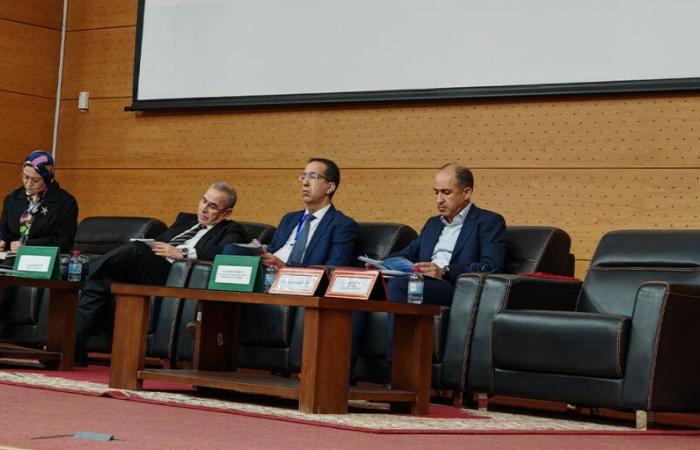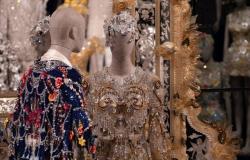
Several researchers and managers gathered last week in Fez during the 4th edition of the international conference on research and managerial practices of the ENCG in Fez. The objective is to bridge the gap between theory and practice to boost business performance. 78 research papers were presented, highlighting the importance of increased collaboration between the academic and professional world.
The National School of Commerce and Management (ENCG) in Fez has brought together several dozen researchers to bridge the gap between research and managerial practices. Too often, the academic and business worlds evolve in parallel, without really feeding off each other. It is this observation which motivated the organization, last Friday, of the 4th edition of the international conference “Research and managerial practices: What reciprocal contributions?”.
For two days, experts, managers and researchers explored the synergies between theory and practice to boost business performance. Organized by the Finance, Control and Audit department and the LAREMEF Laboratory (management, finance and audit of organizations), in partnership with the CNAM in Paris and the ISEOR in Lyon, the conference attracted significant participation, with 78 research papers selected from 96 submissions, spread over 15 thematic workshops.
Connecting research and management
Speaking at this meeting, Abdellatif Eddakir, director of ENCG Fez, underlined the importance of this dialogue between research and managerial practice. He described the conference as a privileged space for exchange and sharing of experiences between professors, researchers, doctoral students, managers and experts. The objective is to explore the complex dynamics that link these two spheres and to understand how they can mutually enrich each other in a constantly evolving economic and technological context.
Eddakir insisted on the essential role of management research in deciphering the current and future challenges of organizations, while recognizing the valuable contribution of managerial practices to nourish and guide research. The director of ENCG developed the idea that management research is a real lever for innovation and efficiency for companies.
“Faced with the rapid transformations of today’s world, academic research makes it possible to analyze and anticipate changes, proposing theories and methods to support the adaptation, transformation and innovation of businesses,” he said. underlines.
Concepts such as the theory of resources and skills, transformational leadership or change management, derived from research, directly influence the strategic and operational decisions of managers.
Action research: a winning partnership for management
As a counterpoint, Eddakir highlighted the importance of managerial practices as a source of data and knowledge for research. Managers, confronted daily with concrete problems, offer researchers privileged access to case studies, empirical data and feedback that enrich the theory.
The complex situations encountered in the field, such as the management of innovation, the promotion of diversity or adaptation to crises, make it possible to test the limits of theoretical models and to refine their relevance. The COVID-19 pandemic has also been cited as a revealing example of this interaction, where observations and solutions implemented by managers have opened new avenues of research.
For Eddakir, the future of management relies on increased collaboration between researchers and practitioners. He advocated for participatory and integrative approaches, favoring the contribution of managers to research programs and ensuring the accessibility and applicability of academic work to realities on the ground.
Initiatives such as industrial doctorates, corporate research laboratories and joint think tanks were presented as concrete examples of this strengthened collaboration. This co-construction of knowledge is, according to him, the key to developing more agile, responsible and inclusive managerial practices, capable of responding to the challenges of the 21st century.
Encouraging tailor-made solutions for businesses, through research
Laurent Cappelleti, director of the Accounting, Control and Audit Chair at CNAM Paris and coordinator of the organizing committee, agreed, emphasizing the need of directors and managers for generic knowledge, validated by scientific research, in order to to build concrete improvement solutions adapted to their specific contexts.
He illustrated this point with concrete examples that affect many companies and administrations. According to him, managers are not looking for ready-made solutions, but rather methodologies and tools to diagnose problems and develop solutions adapted to their reality. He insisted on the importance of field research, anchored in practices, to understand the specificities of each context and avoid ineffective “off-the-shelf” solutions.
For his part, Professor Jean-Marie Peretti, from ESSEC Paris, highlighted the gap sometimes observed between academic research and the needs of the professional world. He insisted on the importance of associating the academic world with professionals to carry out relevant research, anchored in the current concerns of businesses and administrations.
He stressed that this conference at the ENCG in Fez is fully part of this dynamic, by creating a space for dialogue and exchange to bring together the theory and practice of management.
Mehdi Idrissi / ECO Inspirations





